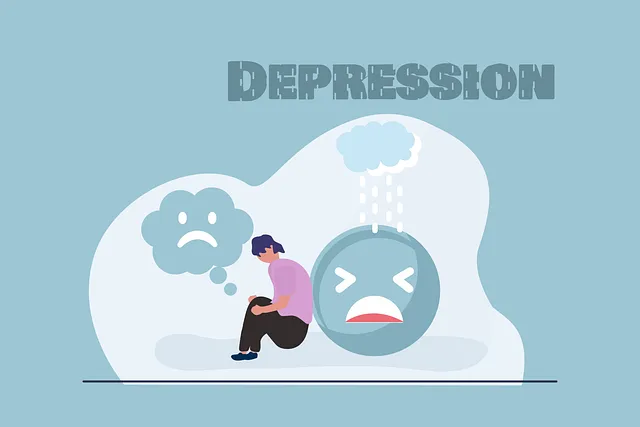The Kaiser Permanente Mental Health Access Center in Parker employs a holistic risk management strategy focusing on proactive patient safety measures, including privacy protection, communication improvement, and staff well-being. Through crisis guidance, self-awareness exercises, and extensive mental health education, the center empowers professionals to handle diverse risks effectively. Their comprehensive approach integrates tailored services, open dialogue, and evidence-based practices, fostering resilience and enhancing patient care, while serving as a vital community resource for mental health awareness and empowerment in Parker and beyond.
“Mental health professionals face unique challenges in managing risks, ensuring patient safety, and maintaining effective clinical practices. This article explores comprehensive risk management planning, drawing insights from the Kaiser Permanente Mental Health Access Center Parker’s proven approach. We’ll delve into understanding risk dynamics in mental health care, highlighting key components for robust plans. Additionally, we provide strategies to mitigate risks, enhancing patient safety and fostering a resilient therapeutic environment, especially relevant to organizations like Kaiser Permanente.”
- Understanding Risk Management in Mental Health Care
- The Role of Kaiser Permanente Mental Health Access Center Parker
- Key Components of Effective Risk Management Planning
- Strategies for Mitigating Risks and Enhancing Patient Safety
Understanding Risk Management in Mental Health Care

Risk Management in mental health care is a vital component for professionals to ensure safe and effective patient treatment. At the Kaiser Permanente Mental Health Access Center, Parker, risk management goes beyond simply mitigating hazards; it involves a comprehensive approach to anticipating, assessing, and addressing potential risks that may impact patient well-being. This includes identifying vulnerabilities, such as those related to privacy breaches, miscommunication, or even staff burnout, which can lead to adverse outcomes if left unaddressed.
The center’s focus on risk management is deeply rooted in its commitment to Crisis Intervention Guidance, Self-Awareness Exercises, and Mental Health Education Programs Design. By equipping professionals with the tools to recognize and respond to these risks, Kaiser Permanente aims to foster a culture of resilience and proactive care. This involves regular training sessions, clear protocol documentation, and an open dialogue that encourages staff to voice concerns without fear of reprisal, ultimately enhancing patient safety and the overall quality of mental health services provided.
The Role of Kaiser Permanente Mental Health Access Center Parker

The Kaiser Permanente Mental Health Access Center in Parker plays a pivotal role in supporting mental well-being within the community. As a dedicated resource, it offers a safe and accessible space for individuals seeking help with their mental health journey. The center’s mission aligns with the Mind Over Matter Principles, emphasizing the power of positive thinking and proactive mental health management. It provides a range of services tailored to diverse needs, ensuring that every member of the community has access to quality care.
This access center is particularly crucial in fostering Mental Health Awareness by educating and empowering individuals to take charge of their emotional well-being. Through various initiatives and programs, they promote resilience, coping strategies, and healthy lifestyles, ultimately contributing to a more positive and supportive environment for Parker residents and beyond.
Key Components of Effective Risk Management Planning

Effective risk management planning for mental health professionals involves several key components, as highlighted by the Kaiser Permanente mental health access center in Parker. First and foremost, a comprehensive assessment of potential risks is essential, encompassing both internal and external factors that could impact patient care and safety. This includes identifying specific challenges related to Trauma Support Services, such as managing complex cases or ensuring consistent access to care, which are common issues within the field.
Additionally, creating robust protocols for crisis intervention and de-escalation strategies is vital. Mental Health Awareness programs should be integrated into daily practices to enhance professionals’ ability to recognize and respond to escalating risks. Moreover, regular training sessions on Confidence Boosting techniques can empower practitioners to navigate high-pressure situations with resilience and expertise, thereby enhancing overall risk management capabilities.
Strategies for Mitigating Risks and Enhancing Patient Safety

Mental health professionals at Kaiser Permanente mental health access centers in Parker prioritize patient safety by implementing robust risk management strategies. These include comprehensive risk assessments tailored to each patient’s unique needs, allowing for early identification and intervention of potential risks. By fostering a supportive environment that encourages open communication, professionals promote emotional regulation among patients, reducing the likelihood of adverse events.
Furthermore, integrating evidence-based practices such as Social Skills Training and Communication Strategies empowers both clients and providers. These approaches enhance understanding, improve interactions, and foster safer, more effective therapeutic relationships. Drawing from Kaiser Permanente’s resources and expertise, Parker’s mental health access centers continually refine risk mitigation strategies to ensure the highest standard of patient care and safety.
Mental health professionals face unique challenges in risk management, but with comprehensive planning, they can create a safer environment for patients. The Kaiser Permanente Mental Health Access Center Parker serves as a valuable resource, offering evidence-based strategies to navigate complex risks effectively. By integrating its key components—risk assessment, proactive mitigation, and continuous improvement—mental health providers can enhance patient safety and foster positive outcomes. These strategies, combined with regular review, ensure that the approach to risk management remains dynamic and tailored to individual needs, ultimately prioritizing patient well-being.






